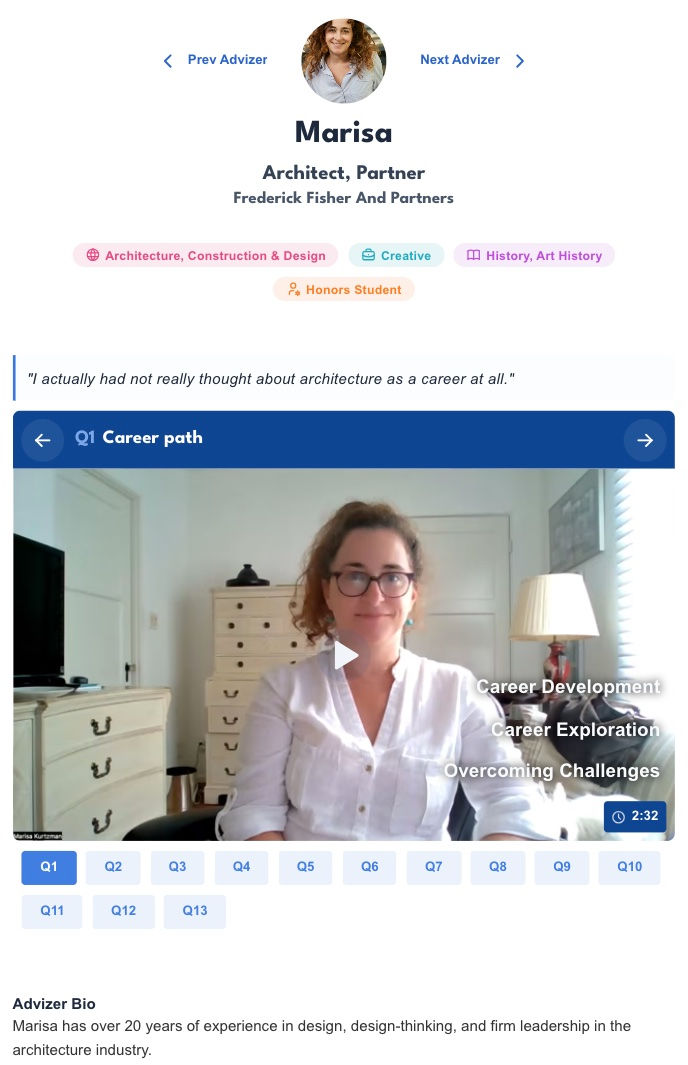Balancing Passion and Practicality: Finding a Fulfilling History Career
- emilymcsherry2023
- Feb 17, 2025
- 3 min read

Think a history degree limits you to academia? Think again. Today's history graduates are forging diverse and fulfilling careers across multiple industries, balancing their passion for analysis and storytelling with practical career considerations. Let's explore how successful professionals have navigated this journey.
From Archives to Architecture: Creative Paths

Some history majors find their way into unexpected creative fields. Marisa, now an Architect at Frederick Fisher and Partners, demonstrates how historical analysis skills can translate into architectural vision. She emphasizes that while financial stability can be more unpredictable in architecture than in some fields, the blend of creativity and practicality required to succeed in this arena can make for a fulfilling career. As she notes, "It's a really interesting combination of left brain and right brain skills and thinking."
Tech and Business Development: Strategic Thinking
For those interested in technology and business, a history degree's analytical foundation can provide unique advantages. Kati, now Director of Product Marketing at Meta, showcases how historical research and analysis skills transfer to strategic thinking in tech. She emphasizes the importance of being "insatiably curious" and notes that the most successful people in her industry are "the people that are asking questions to build their own knowledge and foundation over time."
Research and Social Impact: Making a Difference
The ability to analyze complex information and understand historical context proves valuable in research and social impact roles. Ruth, a Research Specialist at USC, demonstrates how history majors can combine analytical skills with social impact. She emphasizes the importance of prioritizing mental well-being while pursuing meaningful work: "You deserve a working environment that supports you as a human and not just as a worker."
Key Skills That Transfer
Across these diverse paths, certain history skills prove universally valuable:
Research and analysis
Written and verbal communication
Critical thinking
Project management
Contextual understanding
Making the Transition
For history majors considering their career paths, our featured professionals offer valuable advice:
Trust Your Intuition: Molly, an Associate Counsel at JW Player, emphasizes the importance of trusting yourself: "You are the only one who has to live with your choices." She encourages students to follow their interests while remaining open to unexpected opportunities.
Understand Financial Realities: Marisa provides practical advice about financial expectations, noting that while you can make a decent living with a history degree, it's important to be realistic about economic cycles and career stability in the industry you decide to enter.
Prioritize Well-Being: Entrepreneur Bianca highlights the importance of maintaining work-life balance: "If you are in a work environment that feels toxic... don't ignore that feeling."
Building a Sustainable Career

The key to finding fulfillment as a history graduate lies in balancing personal interests with practical considerations. Molly demonstrates this through her approach to career development, emphasizing the importance of being "curious and adaptable" while maintaining boundaries and prioritizing mental health.
Looking Forward
As organizations increasingly value analytical thinking and communication skills, history majors have more career options than ever before. Whether you're interested in technology, architecture, research, or another field entirely, your historical analysis background can provide a strong foundation for success.
Remember, as Bianca emphasizes about finding your path, "There's something to be said for leveraging your inexperience as a superpower, because you aren't that afraid. You are so naive sometimes that you're just willing to kind of go for it and try things."
Whether you're a current history student or a graduate considering a career change, remember that your analytical background and research skills can open doors to unexpected and rewarding career paths. The key is to remain open to possibilities while staying true to your values and well-being.
Want to learn more about how your specific background could translate into a career path? Visit us at Advize for more insights from successful, relatable professionals sharing real information to help.
If you ever want to reach out for help, advice or networking, shoot us an email at hello@advizehub.com or message us on Slack!
Wishing you success,
Emily McSherry
Founder & CEO

![[NEW FEATURE 🗣️] Stop Watching. Start Deciding.](https://static.wixstatic.com/media/23dc45_3a5b0151bd9b48a481071c01d18ddcfc~mv2.png/v1/fill/w_980,h_551,al_c,q_90,usm_0.66_1.00_0.01,enc_avif,quality_auto/23dc45_3a5b0151bd9b48a481071c01d18ddcfc~mv2.png)

